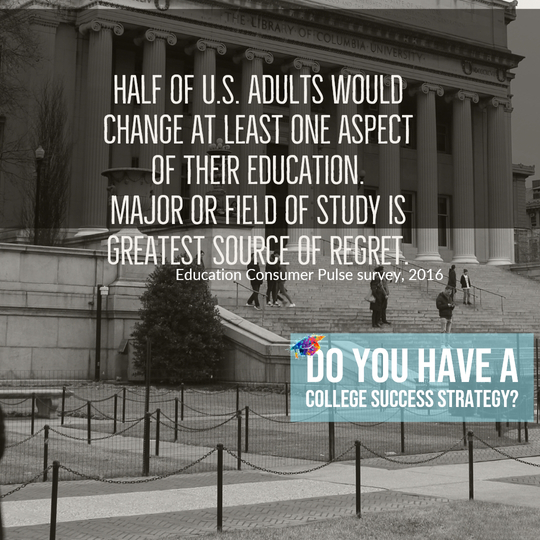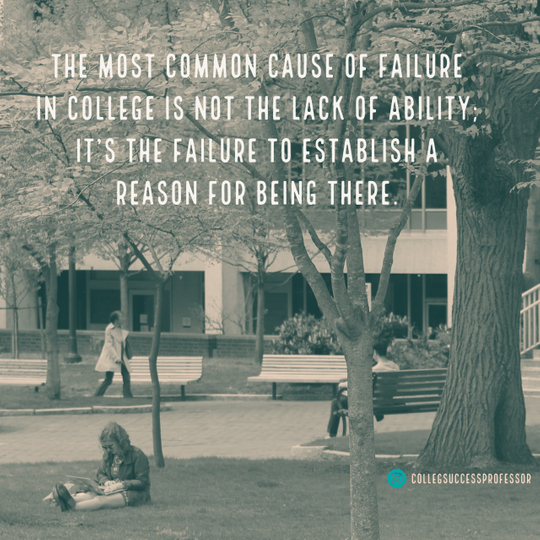COMMON MISTAKES STUDENTS MAKE WHEN THEY BEGIN COLLEGE
6-minute read
Knowing the statics on the number of students who start college and college and do not graduate, there is no wonder that there growing concern as to whether or not college is worth the investment. Though a worthy topics for examination, I will leave that to another post. Today I am to share the common mistakes students who have made the decision to go to college make, sometime before they even arrive on campus. So lets begin.

#1 Not fully understanding the major they intend on pursuing
There are countless examples of student not having a basic understanding of the types of courses that they will have to take as a requirement to obtain a degree in the major. For example, in nursing a popular major, requires a lot of science coursework. Too often, students do not have an understanding that courses in anatomy and physiology, microbiology and knowledge of how to do mathematical conversions, necessary when administering medication, are essential skills and knowledge essential to nursing. I mean would you want a nurse taking care of you or someone you loved who didn’t learn these important skills and more?
The nursing example is just one, the point is that students need to take advantage of the wealth of information that is available and do more in depth research when they choose a major or make a final decision on a school based on an untested desire to be a specific major.
A second point within the process of choosing a major is choosing a majoring for non-researched reason such as making a lot of money. While I do think that taking into consideration the return on one’s financial investment, is important depending on an individual’s values or priorities? Unfortunately, however many students rely on rumors of what majors make a lot of money. If students are going to prioritize the financial rewards of majoring in a certain disciple, they should be sure to look at reliable resources such as the Occupational Outlook handbook. ONET projects the demand for careers and can be forecasted for the year of graduation and for specific regions of the country.
#2 Not planning for how to pay for tuition, fees, room board, books, transportation, etc.
There are a number of additional expenses that are associated with going to college. Many times the financial aid package does not cover everything and students often find themselves not preparing in advance for expenses that will present themselves during the semester or at the end of the semester once all of the aid has be awarded to the account.
Too often students find themselves with a financial hold on their account and unable to register for the following semester because they did not look closely at the financial aid package and figure out how they were going to pay for their unmet need. Many schools have payment plans that will extend payments over the course of the semester so that payment can be made more manageable.
#3 Not taking the selection of the courses seriously
Students who refuse to believe the hype about the level of difficulty of college classes don’t understand the complexity of factors that make college courses difficult. So let me explain:
Factor 1 - Professors in college are experts in their discipline who most likely decided to go into academia because they loved their field so much they wanted to dedicate their life’s work to further research and study. NOT BECAUSE THEY WANTED TO TEACH. Most professors are not trained to educate you about their discipline. Therefore, in some instances you will have to teach yourself.
Factor 2 - Many times first year courses are taught by new faculty or faculty who work part time at the university. Why you may wonder-- there is a prevailing belief among faculty that first year students are not as serious about the subject matter and are not willing to put in the time and effort. Often, it is not until you get into the upper level courses that you are in classes taught by professors who are more excited about and engaged in the course
Factor 3 - Most college professors will not remind you about exams, will not ask you if you understand, will not care about you as much as your high school teachers. Professors expectations are usually clearly outlined in the syllabus and you are expected to read it and understand it along with universities policies about cheating , plagiarism and how to get help.
What this means is that your course schedule every semester is a gamble. Often the name of the teacher is not listed or you have no idea what the teacher will be like until you are in a course. Often students do not take full advantage of the add drop period. Decisions about staying or changing classes need to be made quickly and based on doing some work. What work needs to be done. Well off the top of my head, I suggest the following:
- Go to class and assess the instructors teaching style. How does the instructors teaching style with align with your ability to learn the material?
- Assess the pace of the class. Is it too fast? Is it too slow and boring?
- How fully are concepts and instructions explained?
- Review the Syllabus
- How many tests and projects are there?
- What amount of reading are you expected to do each week?
- What do other students say about the professor
- What doe google say about the professor?
- Is the course at the best time for your peak learning?

#4 NOT making a priority of finding a tribe, finding your place and/or finding your purpose
Whether you are an introvert, or you are trying to reinvent yourself, the sooner you are able to find like-minded people, get out of your comfort zone, make new friends, and expand your horizons; the more likely you will be able to claim this new world of college as your home. As Michelle Obama says, “No one gets through college or life alone.” You need to build a support network that includes a small group of friends, who you can share transformational experiences with, classmates who you can ask to copy notes from or someone to form a study group when you miss a class. You will also need faculty who could one day be a mentor, write a letter of recommendation or help you figure out what you are going to do with your degree.
#5 Being dependent on your family to help you figure out everything
Part of the transition to being a college student is learning how to be an adult. So calling your parents to help you figure out everything will not give you the important life experience in learning how to persevere through the ups and downs of life.
There are often many resources and people on campus that are there to support you. Often asking an upperclassman, your Resident Assistant, your academic adviser can save you a lot of time and worry from your parents. Definitely keep I touch with your parents and let them know what is going on, but going home all the time or calling home about everything will not allow you to do the important growing up that is a key part of your development as an emerging adult.
#6 NOT dealing with small problems before they become big problems
On the flip side, small issues such as minor roommate issues, a low grade on the first paper or quiz or evidence that you ,may be involve in a toxic friendship or are red flags that must be acted on immediately. Communication with your roommate about the little things in the beginning will make for a happier semester. Do not let things build and explode during midterm exams where you likely to be stressed about your academic life.
As I stated earlier, if you look at the course syllabus and the instructor’s teaching style for the first few classes leaves you with a bad feeling, they change your schedule. If you can’t, see what academic support services are available. Also as Maya Angelou said, “When people show you who they are, believe them the first time.” If someone who you thought would be your best friend the first week of school shows you their true colors after that first week, heed that warning.
Lastly, #7 Not being open to change
Being willing and open to change your mind about your major, your thoughts about different types of people and your outlook on the world is one of the many benefits of being in a collegiate environment. You never know impact what being open to new thing and experience will have on your life. Take full advantage and optimize the time you have on campus because the people you meet and the decisions you make have the potential to alter the course of your life.